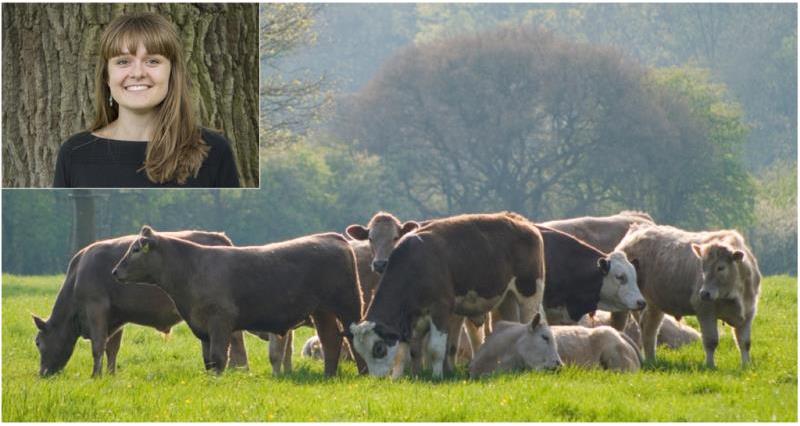She writes:
“Hope for the best but plan for the worst.”
This was the message from Gordon Wyeth, Farmer’s Weekly’s 2016 sheep farmer of the year, as he spoke at the NFU’s South East livestock conference. With the wide array of issues currently challenging farmers as well as the vulnerability of the beef and sheep sectors to future trade agreements, the importance of negotiations in Brussels cannot be overstated. Yet it is clear many are optimistic about the future.
Charles Sercombe, chairman of the NFU’s National Livestock Board, opened the conference with the strong message that this was “an opportunity to change things like never before.” He called for the creation and maintenance of short, fair supply chains which recognised the importance of engagement with consumers and of knowledge exchange to ensure industry insights and research reaches farm level. He also emphasised the importance of UK farmers operating on a level playing field when it comes to the quality and standards of imported product.
There was however a cautionary note to the day and a warning that expectations must be managed. Speaking about the Great Repeal Bill, NFU Director of EU Exit and International Trade Nick Von Westenholz made it clear that there will be “no bonfire of red tape and regulation” as some might have hoped for come April 2019. While some legislation will have to be reviewed and amended, the general regulatory framework will remain the same on the day the UK leaves the European Union.
Peter Hardwick, AHDB Head of Exports, spoke about the opportunities the UK has to do deals with big trading nations such as China, Japan and the USA. He pointed to the UK's recent pig trade with China which has led to exports of pig meat accounting for more than beef and lamb exports put together. However, he did caution that every trade deal will need an individual export health certificate, the negotiation of which can take years. The porcine trade deal with China for example was initiated in 2004 but it was not until 2011 that the first shipment left the UK.
From the panel discussion it was clear that variation in product and standards across the UK is a huge concern with members calling for classification to move beyond just weight and yield and to recognise meat quality: tenderness, juiciness, flavour and colour were just a few of these options.
Audience input showed that education has to be a priority moving forwards: getting more members of the public on-farm, engaging via social media and dispelling myths surrounding health and production are key. Furthermore, the breakdown of the 'farmer' stereotype and the promotion of a recognisable brand and of the grass-based, flavoursome and nutritious product the livestock industry produces is vital going forwards.
